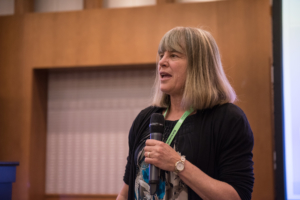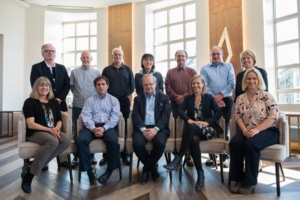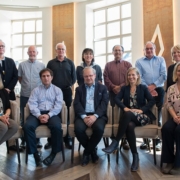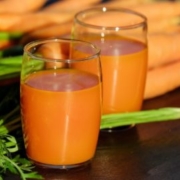Connecting with the ISAPP community: Continuing to advance the science of probiotics and prebiotics
By Mary Ellen Sanders PhD, executive science officer, ISAPP
On behalf of the ISAPP board of directors, I am reaching out to the ISAPP community to say we hope you are doing well and taking all the necessary steps in your local communities to remain healthy. At present, the global ISAPP community is physically distant but digitally close, and it is important for us to remain connected and strong.

ISAPP’s activities are as important as ever during this time of increased attention to health, and ISAPP is continuing to uphold its commitment to (1) stewardship, (2) advancing the science, and (3) working with stakeholders. Although our annual meeting, which some of you may have initially planned to attend, has been cancelled, other ISAPP activities are continuing or expanding as follows:
- Building on an important topic for our annual meeting, ISAPP is working to develop a strategic approach to communicating the science on probiotics, prebiotics, fermented foods, synbiotics, and postbiotics.
- The ISAPP board of directors is pleased that our founding board members, Profs. Gregor Reid and Glenn Gibson, have agreed to remain on the board until the 2021 meeting, in particular to help with long-range planning. New academic board members will also be elected, thereby expanding the board. Working together, we will bring fresh insights, strategies and global reach.
- The board is considering how best to approach our cancelled meeting. In lieu of re-scheduling this year’s in-person meeting, we are planning to have virtual content covering some of the originally scheduled topics. Some discussion group topics will be carried over to the 2021 meeting, while others will be addressed virtually. We will communicate further on this soon.
- Our newsletter will continue on a monthly basis.
- Blog postings, which are aimed at either consumers or scientists, remain timely and popular – with new contributions posted on average every 2-3 weeks. Authored by board members and other experts in the field, these blogs provide a forum for opinions and observations on current issues and controversies as well as insights on global fermented foods, critical regulatory actions, and other relevant topics.
- ISAPP filed comments on March 17 with the American Gastroenterological Association in response to their draft recommendations for probiotic use in GI conditions.
- Spearheaded by former ISAPP IAC representative to the board, Dr. Roberta Grimaldi, ISAPP has subtitled several of the most popular ISAPP videos in different languages, including Dutch, French, Spanish, Russian, Japanese, Italian and Indonesian. The first of these should be posted by end of April.
- The ISAPP-Students and Fellows Association has launched a blog program to provide perspectives by young scientists on issues of importance to the probiotic and prebiotic fields. They have also submitted a manuscript to Frontiers in Microbiology discussing a toolkit needed for their future in science: “Future of probiotics and prebiotics: an early career researchers’ perspective”.
- Three consensus panels have been conducted since May of 2019. A manuscript arising from the synbiotics panel, chaired by Prof. Kelly Swanson, is in press with Nature Reviews Gastroenterology and Hepatology. The paper summarizing the consensus panel on fermented foods, chaired by Profs. Robert Hutkins and Maria Marco, is almost ready for submission to Nature Reviews Gastroenterology and Hepatology. A manuscript from the consensus panel on postbiotics, chaired by Prof. Seppo Salminen, is currently being written. All three papers are expected to provide clarity to the field with regard to definition of terms, current evidence for health benefits, and impact on stakeholders.
- In addition to the three consensus panel papers in progress, several different ISAPP endeavors are at different stages of publication:
- ISAPP vice president, Prof. Dan Merenstein, and executive science officer, Dr. Mary Ellen Sanders, worked with biostatistician and frequent ISAPP contributor, Prof. Dan Tancredi, to summarize evidence for clinical endpoints for probiotics, to be published in the Journal of Family Physicians. This paper, titled “Probiotics as a Tx resource in primary care”. The paper is currently in press.
- Several ISAPP board members and other participants in a 2019 meeting discussion group recently submitted to Current Developments in Nutrition a paper titled “Dietary Recommendation on Adequate Intake of Live Microbes: A Path Forward”.
- Marla Cunningham, the current IAC representative to the ISAPP board, has led an effort to compile results from the IAC Learning Forum from the 2019 ISAPP meeting on the topic of matrix effects impacting probiotic and prebiotic functionality. Manuscript in preparation.
- Colin Hill and I represented ISAPP on a paper under review at Nutrients initiated by IPA-Europe titled “Criteria to qualify microorganisms as ‘probiotic’ in foods and dietary supplements”. This paper consolidates and fleshes out minimum criteria for use of the term ‘probiotic’ published by different groups, including the 2002 FAO/WHO working group, the 2014 ISAPP consensus paper on probiotics, and the 2018 ISAPP discussion group on global harmonization.
- Glenn Gibson and Marla Cunningham are coordinating a paper titled “The future of probiotics and prebiotics in human health” as an output from their 2019 discussion group.
See here for all published ISAPP papers.

ISAPP board members, 2019 annual meeting
Messages about probiotics and COVID-19
With many conflicting and confusing health messages circulating during this global pandemic, including some criticisms of our field as well as some unsupported claims made by certain individuals and companies, ISAPP will remain an important touchstone for scientifically accurate information. Focusing on health effects is key to demonstrating probiotic and prebiotic efficacy, and we acknowledge that human studies are the ultimate measure of efficacy, but also, elucidating mechanisms of action help us understand how these interventions interface with the immune system and other mediators of health. Currently, there is some evidence that certain probiotics/prebiotics can reduce the risk of viral infections (discussed in other blog posts here and here), but it is important to remember that they have not been studied specifically for COVID-19 prevention or treatment. This must be acknowledged when communicating with the wider community.
We greatly appreciate the continued support of our IAC members. The ISAPP Board, colleagues, and SFA will continue to chart a course forward in preparation for life after the pandemic. Our intent is to emerge from these experiences more connected and purposeful than ever. We welcome suggestions on how collectively we can endure and strengthen the science and communications that remain foundations of our field.






